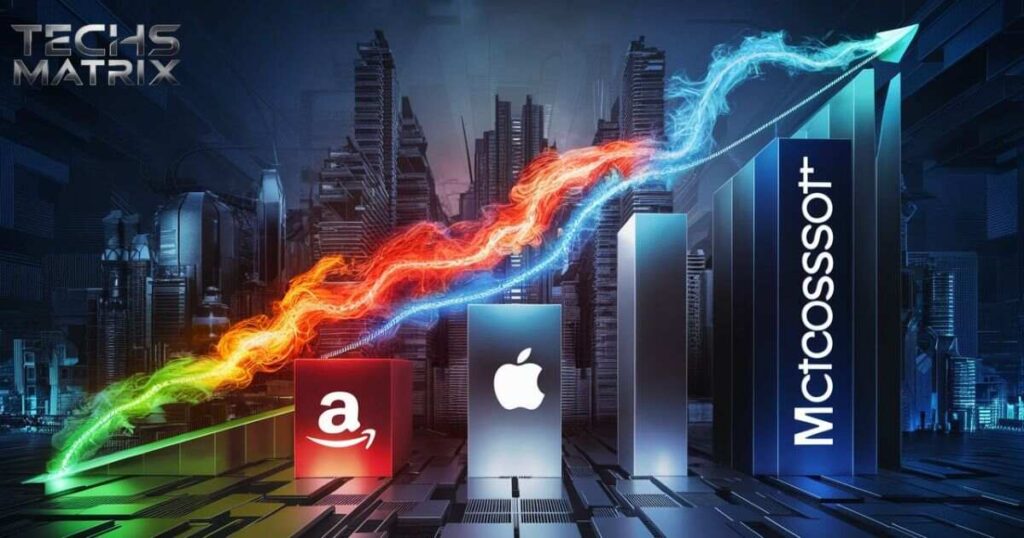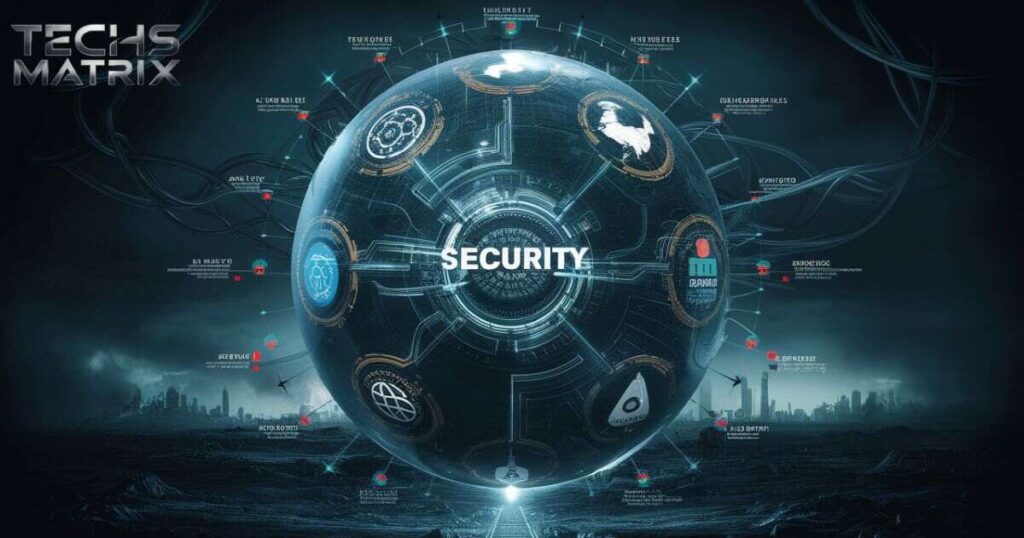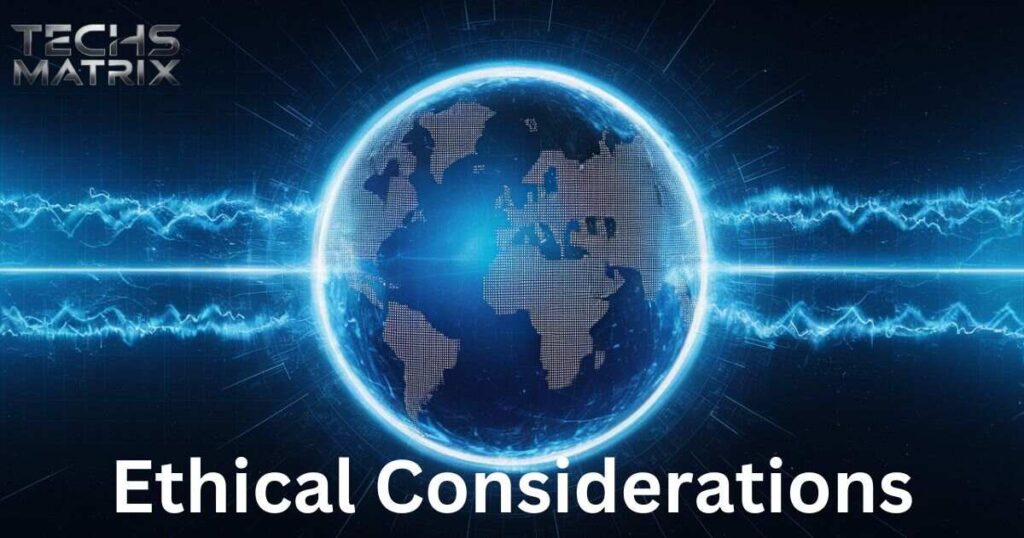CISA,the Cybersecurity and Infrastructure Security Agency, is a federal agency in the United States responsible for improving cybersecurity across all levels of government. It works to protect the nation’s critical infrastructure from cyber threats and collaborates with both public and private sectors to enhance digital security.
In an era where our digital lives are increasingly intertwined with global security, tech giants have emerged as unexpected guardians of our online world. As these corporate behemoths join forces with CISA, we’re left wondering: are we witnessing the dawn of a new age in cybersecurity, or the rise of an all-powerful technocracy.
In today’s digital age, the influence of technology giants on global security has become increasingly apparent. These corporations, once known primarily for their innovative products and services, now play a crucial role in shaping the landscape of cybersecurity,CISA and data protection.
The Rise of Technology Giants
The past few decades have witnessed the meteoric rise of technology companies that have fundamentally transformed the way we live, work, and interact. From search engines to e-commerce platforms, social media networks to cloud computing services, these corporations have become integral to our daily lives.
Growth of companies such as Google, Amazon, Facebook, Apple, and Microsoft
The rapid growth of these tech giants is nothing short of remarkable. Let’s take a closer look at their journey:

- Google: Founded in 1998, Google quickly became the world’s leading search engine. Today, it’s a multi-faceted technology company offering services ranging from email and cloud storage to mobile operating systems and artificial intelligence.
- Amazon: Starting as an online bookstore in 1994, Amazon has evolved into the world’s largest e-commerce platform and a leader in cloud computing services through Amazon Web Services (AWS).
- Facebook: Launched in 2004 as a college social network, Facebook has grown into a global social media powerhouse, acquiring platforms like Instagram and WhatsApp along the way.
- Apple: From its humble beginnings in a garage in 1976, Apple has become one of the most valuable companies in the world, known for its innovative hardware and seamless ecosystem of devices and services.
- Microsoft: Founded in 1975, Microsoft dominated the personal computer market with its Windows operating system and Office suite. It has since diversified into cloud computing, gaming, and enterprise solutions.
How have these entities expanded beyond their original Business Models?
These tech giants have shown remarkable adaptability, expanding far beyond their initial offerings:
- Google: From a search engine to a diverse technology conglomerate (Alphabet Inc.) involved in autonomous vehicles, life sciences, and more.
- Amazon: Expanded from e-commerce to cloud computing, artificial intelligence, and even healthcare.
- Facebook: Evolved from a social networking site to a digital advertising powerhouse and a pioneer in virtual reality technology.
- Apple: Transitioned from personal computers to mobile devices, wearables, and services like Apple TV+ and Apple Pay.
- Microsoft: Shifted focus from software to cloud computing, AI, and enterprise solutions.
This expansion has not only increased their market dominance but also their influence on global security matters.
Areas of Influence Where Technology Giants Control The Global Security
The reach of these technology giants extends into various aspects of global security, with three key areas standing out:
Data Security:
In the digital age, data is often referred to as the new oil. Tech giants process and store vast amounts of personal and corporate data, making them custodians of incredibly sensitive information. Their role in data security includes:
- Implementing robust encryption protocols
- Developing advanced authentication methods
- Creating secure data storage systems
- Establishing data breach prevention and response strategies

Cybersecurity:
As creators of widely used software and platforms, these companies play a crucial role in cybersecurity:
- Identifying and patching vulnerabilities in their products
- Developing and updating antivirus and anti-malware solutions
- Creating secure coding practices and frameworks
- Educating users about cybersecurity,CISA best practices
Surveillance:
The tech giants’ capabilities in data collection and analysis have significant implications for surveillance:
- Developing facial recognition technologies
- Creating location tracking systems
- Implementing data mining and pattern recognition algorithms
- Collaborating with law enforcement agencies in criminal investigations
Influential Technology Giants Control The Global Security Landscape
The influence of technology giants on global security is multi-faceted and far-reaching. Here’s a detailed look at how these companies shape the security landscape:
- Infrastructure Control:
- Cloud Services: Companies like Amazon (AWS), Microsoft (Azure), and Google (Google Cloud) dominate the cloud computing market, hosting critical data and applications for businesses and governments worldwide.
- Network Infrastructure: Through projects like Google Fiber and Facebook’s internet.org, these companies are building and controlling significant portions of the internet’s physical infrastructure.
- AI and Machine Learning:
- Developing advanced AI systems for threat detection and response
- Creating machine learning algorithms for predictive security measures
- Implementing AI-driven analytics for identifying patterns in cyber attacks
- Standard Setting:
- Influencing cybersecurity,CISA standards and best practices
- Participating in global forums and policy-making discussions on digital security
- Developing and promoting secure coding practices
- Information Control:
- Content moderation on social media platforms
- Developing algorithms that determine information visibility and spread
- Implementing fact-checking systems and combating misinformation
- Hardware Security:
- Designing secure hardware components (e.g., Apple’s Secure Enclave)
- Implementing hardware-based security features in devices
- Creating secure communication protocols for IoT devices
To illustrate the market dominance of these tech giants in various sectors, consider the following table:
| Company | Primary Sector | Market Share |
| Search Engines | 92.47% | |
| Amazon | E-commerce | 37.8% |
| Social Media | 69.6% | |
| Apple | Smartphones | 23.4% |
| Microsoft | Operating Systems | 75.85% |
This level of market dominance translates directly into significant influence over global security practices and standards.
Also Read This:Tech Games Defstartup: Innovate & Win Games to Flourish Your Startup
Collaboration with CISA To Protect Digital Realm
The Cybersecurity and Infrastructure Security Agency (CISA) plays a pivotal role in coordinating cybersecurity efforts in the United States. Its collaboration with technology giants is crucial for maintaining a robust national cybersecurity posture.
Here’s how this partnership works:
- Information Sharing:
- CISA and tech companies share threat intelligence and vulnerability information
- Joint development of cybersecurity,CISA best practices and guidelines
- Regular meetings and forums to discuss emerging threats and strategies
- Incident Response:
- Coordinated response to major cyber incidents and breaches
- Shared resources and expertise during large-scale cyber attacks
- Joint exercises to test and improve incident response capabilities
- Research and Development:
- Collaborative research projects on advanced cybersecurity,CISA technologies
- Funding and support for innovative security solutions
- Joint efforts to address emerging threats like quantum computing and AI-powered attacks
- Policy Development:
- Tech giants provide input on cybersecurity policies and regulations
- CISA consults with industry leaders on the practical implications of proposed security measures
- Joint efforts to promote international cooperation on cybersecurity,CISA issues
- Public Awareness:
- Collaborative campaigns to educate the public about cybersecurity
- Joint development of resources for businesses and individuals to improve their security posture
- Shared efforts to promote cybersecurity,CISA as a career path and address the skills gap in the industry
This collaboration between CISA and technology giants is essential for creating a more secure digital environment. However, it also raises important questions about the concentration of power and the potential for conflicts of interest.
Must Read This Article:Discover the Power Of Newly Launched GPT66X
Technology Giants Control The Global Security: Ethical Considerations
The significant influence of technology giants on global security brings with it a host of ethical considerations:

- Privacy vs. Security:
- Balancing the need for surveillance and data collection with individual privacy rights
- Ensuring that security measures don’t infringe on civil liberties
- Transparency in data collection and usage practices
- Monopoly and Competition:
- Concerns about the concentration of power in the hands of a few companies
- Impact on innovation and competition in the cybersecurity,CISA market
- Potential for abuse of dominant market positions
- Accountability:
- Determining responsibility for security breaches and data leaks
- Ensuring tech giants are held accountable for the security of their products and services
- Balancing corporate interests with public safety
- Global Influence:
- The impact of U.S.-based companies on global cybersecurity,CISA standards
- Potential conflicts between corporate interests and national security concerns
- Navigating different legal and regulatory frameworks across countries
- Algorithmic Bias:
- Ensuring that AI and machine learning systems used for security don’t perpetuate biases
- Transparency in the development and deployment of security algorithms
- Addressing potential discrimination resulting from automated security systems
- Digital Divide:
- Ensuring that advanced security measures don’t widen the gap between tech-savvy users and others
- Providing equal access to cybersecurity education and resources
- Addressing disparities in security capabilities between developed and developing nations
To address these ethical considerations, several steps can be taken:
- Implement strong regulatory frameworks to ensure accountability
- Promote transparency in security practices and data usage
- Encourage diverse perspectives in the development of security technologies
- Foster international cooperation on cybersecurity,CISA issues
- Invest in public education on digital security and privacy
Conclusion
The influence of technology giants on global security is undeniable and continues to grow. Their collaboration with agencies like CISA is crucial for maintaining a robust cybersecurity posture in an increasingly complex digital landscape. However, this partnership must be balanced with ethical considerations and public oversight.
As we move forward, it’s essential to foster a dialogue between tech companies, government agencies, and the public to ensure that our approach to global security is both effective and aligned with our values. The future of our digital world depends on striking the right balance between innovation, security, and ethical responsibility.
Frequently Asked Questions (FAQs)
How do technology giants contribute to global cybersecurity?
Technology giants contribute through advanced security features, threat intelligence sharing, and collaboration with government agencies like CISA.
What role does CISA play in working with tech companies?
CISA coordinates cybersecurity efforts, shares threat information, and develops policies in collaboration with major tech companies.
Are there concerns about the influence of tech giants on global security?
Yes, concerns include privacy issues, market dominance, and potential conflicts of interest in shaping security policies.
How do tech companies balance user privacy with security needs?
They implement encryption, transparent data policies, and user controls, though balancing privacy and security remains challenging.
What can individuals do to enhance their cybersecurity in light of tech giants’ influence?
Individuals can stay informed, use strong passwords, enable two-factor authentication, and be cautious about sharing personal information online.

Sallas: Tech-savvy professional with 5 years in the industry. Skilled in software development, cloud computing, and AI. Known for innovative solutions and teamwork.








